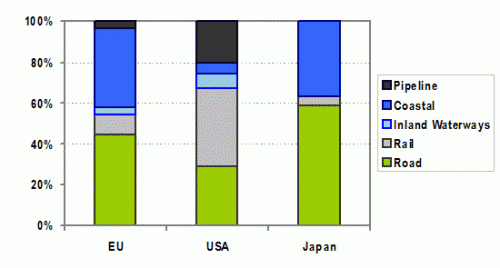Some Federal agencies are able to maintain their mission over many decades without much change from administrations that come and go. The National Park Service is a good example.
Other agencies, in the desire to get funding, constantly recast their mission based on whatever flavor of the month is hot. Here was one example I cited before, from the NIH, which, amazingly, managed to recraft its mission in the context of climate change to make itself more immediately relevent to the Obama folks:
Remember, the point of this all is not science, but funding. This is basically a glossy budget presentation, probably cranked out by some grad students over some beers, tasked to come up with scary but marginally plausible links between health issues and climate change. Obama has said that climate is really, really important to him. He has frozen a lot of agency budgets, and told them new money is only for programs that supports his major initiatives, like climate change. So, every agency says that their every problem is due to climate change, just as every agency under Bush said that they were critical to fighting terrorism. This document is the NIH salvo to get climate change money, not actual science.
I have worked with the US Forest Service for years as a private operator of many of their recreation sites (for whatever faults they might have, they have been an early innovator on privatization -- without it, they could never have kept all their recreation sites open given their budget constraints). The USFS has always had a mission challenge. They are specifically tasked with balancing five missions -- Environmental preservation, timber, minerals extraction, recreation, and ... I can't remember the other one. Grazing maybe.
In practice, this has meant of late that whatever interest groups among these five who are willing to spend the most time in court are able to shape the USFS mission in their direction, and in practice this has meant environmental groups. As a result, Timber, the main source of USFS funding (from private timber fees) has pretty much been killed in the USFS, creating a funding crisis. With their very logical timber mission gone, the only thing the USFS is unique at is recreation, as it is (surprising to many people) the largest recreation organization in the world. However, this seems to be next on the environmentalists' target list.
So I suppose it is no surprise that the US Forest Service has decided to abandon any sense of long-term mission and simply glom onto whatever is the pet issue of the current administration. For this year, they have latched onto climate:
The Forest Service has issued a national road map for responding to climate change, along with a performance scorecard to measure how well each individual forest implements the strategy.The new blueprint outlines a series of short-term initiatives and longer-term projects for field units to address climate impacts on the country's forests and grasslands.
"A changing global climate brings increased uncertainties to the conservation of our natural resources," Agriculture Secretary Tom Vilsack said in a statement. "The new roadmap and scorecard system will help the Forest Service play a leadership role in responding to a changing climate and ensure that our national forests and grasslands continue to provide a wide range of benefits to all Americans."
The last sentence could be rewritten as "we will continue to do everything we have done in the past but relabel as much as we can as having to do with climate change."
I can only speak to the recreation component, but this is the largest recreation organization in the world. In some sense this new mission is roughly equivalent to the National Park Service hypothetically announcing in the Bush administration that it was going to focus on the war on terror. In many areas of the USFS they, at their own admission, have years or decades of deferred maintenance. From watching them at close range, they very clearly don't have the resources to handle the missions they have already taken on, and so it is going to dedicate its resources to this:
Immediate assessment actions include providing basic and applied science to help managers respond to climate change, conducting workshops, utilizing national monitoring networks, furnishing more predictive information, developing vulnerability assessments, tailoring monitoring and aligning service policy and direction.
Longer-term assessment will focus on expanding the agency's capacity for assessing the social impacts of climate change, implementing a genetic resources conservation strategy and fortifying internal climate change partnerships.
To the extent that some of this means "monitor forest health," I thought the organization was already doing that. As to the value of the rest of this stuff? Forgetting for a minute if the work should even be undertaken, under what possible allocation of expertise in the Federal bureaucracy does "assessing the social impacts of climate change" fall under the purview of the Forest Service?

